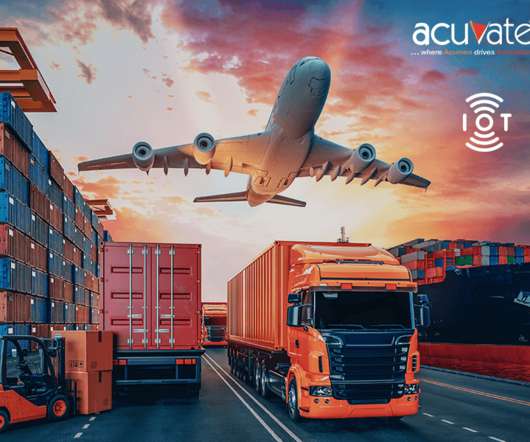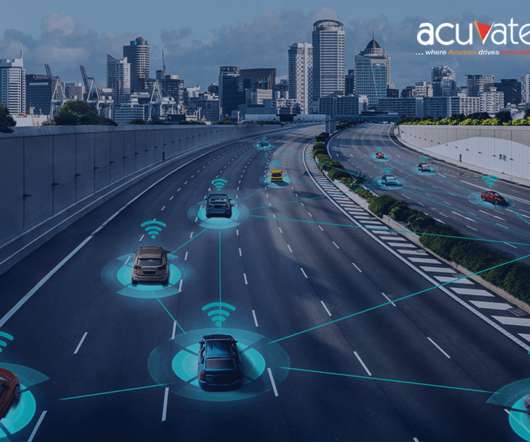IoT for Logistics: Leveraging Data-driven decisions for Predictive and preventive Fleet Maintenance, Optimizing life cycle, and Ensuring Workforce Safety
Acuvate
MAY 31, 2022
with last-mile connectivity and offering continuous and real-time data on static and moving assets and infrastructure. Logistics and fleet management is one such domain where these advantages influence most. It is not surprising that the global IoT market in logistics is expected to reach $100,984.5 million by 2030. .















Let's personalize your content